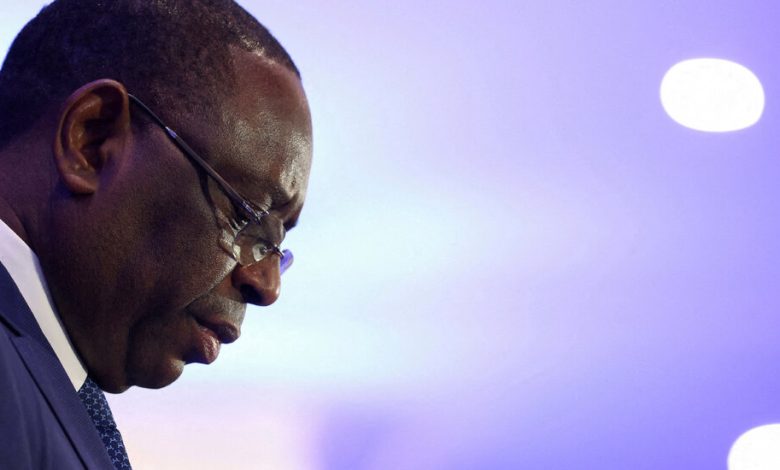My Country Is Witnessing a Messy, Buffoonish End of Rule

On Dec. 31, 1980, Léopold Sédar Senghor, the first president of Senegal, announced that he was leaving power. At 74, he felt that his time was up. When courtiers tried to convince him to reverse his decision, he reportedly replied, with a smile: “Don’t you know how the Senegalese are? If I go back on my word, they’ll laugh at me.” His act was especially remarkable at a time when dictators for life were common across the African continent. Even if his political record remains controversial to this day, Mr. Senghor, a fervent Catholic poet, was open-minded enough to lead a majority Muslim country and even managed to make it a model of stability in the region.
Things are very different today. In Mr. Senghor’s homeland, we are in the midst of a messy and at times buffoonish end of rule that threatens to capsize the country’s hard-won equilibrium. In early February, President Macky Sall, approaching the end of his two terms in office, postponed an election set for later that month. The move immediately plunged Senegal into disarray, setting off widespread protests, parliamentary chaos and a full-blown constitutional crisis. In one of the very few African countries never to have experienced a military coup, the last-minute postponement felt tantamount to a coup d’état.
If Mr. Sall’s gambit was to remain in power, it didn’t work. Into the vacuum stepped the constitutional council, the country’s highest court, which ruled that the delay was illegal. Backed into a corner, Mr. Sall eventually agreed to leave office on April 2 and the election was rearranged for March 24, this Sunday. For Mr. Sall, holed up in the presidential palace he was so loath to leave, it marks an embarrassing reversal, to say the least. But for Senegal it is much more serious. The country’s destiny, entrusted to Mr. Sall for 12 years, is now in danger.
Since committing not to run for a third term last summer, Mr. Sall has never been quite the same. He has become irritable, humiliating his ministers in public and naming boulevards after himself. Let down by his own people and his traditional Western supporters, he gave vent to his anger in a February speech with a very strong Wolof expression — “Doyal naa ci sëkk!” — which can be politely translated as: “I’m more than fed up with this power, take it back whenever you want!”
Such a disastrous end to Mr. Sall’s career is all the more perplexing given that he had very good intentions at the outset. In April 2012, two weeks after his swearing-in, he announced from the Élysée Palace in France his decision to reduce presidential terms of office from seven to five years. After the change was eventually upheld in a referendum, applying to his second term rather than his first, Mr. Sall seemed to have honored his word. But his subterfuge in recent weeks suggests that, in the end, even this dream was too big for him.
This post-independence president, the fourth to hold the office, is the first to be so often called a dictator. Is he one? The answer is no, when you consider the carnage being perpetrated by Mahamat Idriss Déby’s regime in Chad, for example. I’m well aware, however, that this kind of comparison not only leads nowhere but is also rather dangerous. Each country must be judged on the basis of its own history, and it would be very sad to end up congratulating ourselves on having fewer dead bodies in the streets of Dakar than in those of Ndjamena.
